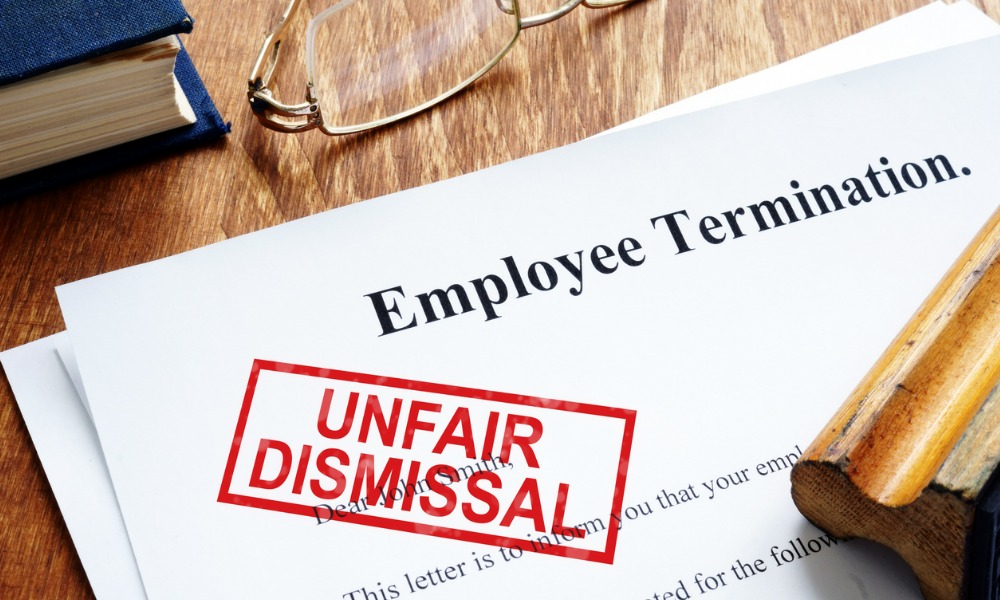
Blindsided worker says employer didn't present evidence of 'poor performance'

The Fair Work Commission (FWC) recently dealt with the unfair dismissal claim of an employee who said she was blindsided when the employer fired her. The latter claimed it had a valid reason and said she was cited for previous performance issues.
The employee started working for the employer in September 2022, having held various capacities related to logistics, procurement, drafting and scheduling in a full-time capacity.
The employer operates a plant in Cooroy, which was previously under a different owner. The employee had initially worked for the previous owner of the Cooroy plant, and her employment transferred to the current owner.
Before her dismissal, the employee said there were staff shortages, and she had been juggling multiple responsibilities, including training another staff member to take over some of her tasks.
On 25 November 2022, the employee said she was dealing with several urgent requests. The general manager advised her to focus solely on drafting. In response, the employee mentioned that if she didn't focus on drafting, the employer would find someone else who would.
Later, she contacted the CEO, who assured her that the issue would be resolved. However, she said her inability to continue working that day due to feeling “upset and distressed.” The CEO then instructed her to go home for the day.
Following her conversation with the CEO, the employee told the general manager that she had no problem concentrating on drafting but had faced difficulties in handing over some of her responsibilities.
She said her tasks “were complicated, and that the staff member who was going to take over some of [her] duties was not performing in those roles.”
The employee then received a text on 26 November 2022 from the general manager that said, “Do not come in Monday, Call me when you get a chance thx,” followed by a message that said, “Did u get my message yesterday?”
On 28 November 2022, the employee attempted to call the general manager, but received an automated message. She was informed by phone call on this day that the employer would terminate her employment effective immediately with two weeks’ pay.
The employer sought the case’s dismissal, citing prior warnings regarding the employee's performance issues.
According to the employer, there were several concerns regarding the employee's work performance. During an organizational restructure, the employer assessed issues within the Cooroy office, and they claimed that the employee's response to mistakes, the quality of her work, and her failure to acknowledge feedback and follow directions led to her dismissal, as this could pose ongoing financial and reputational risks to the business.
The employer pointed out various mistakes, including errors in booking trucks, which would result in back charges for the employer and its clients. Other issues raised included procurement errors, drafting mistakes, breaches of confidentiality, spending time on the factory floor when she was assigned to other duties, leaving work early, and not following instructions from her manager.
The general manager said he pointed out these mistakes in emails from October to November 2022, where the employee failed to schedule deliveries at the appropriate times.
According to him, they had multiple discussions with the employee about the said errors, however, when asked to rectify them, the employee told the manager to “deal with it himself.”
The employer also said it attempted to transition her role to drafting over a two-month period, and she was informed that new staff members would take on some of her responsibilities. The employer contended that the employee had difficulty adjusting to her new role, and when she did attempt it, she made costly mistakes.
On the day of her dismissal, the general manager overheard a conversation indicating that she was still performing her old duties rather than focusing on drafting, as instructed. The employer argued that the employee was “being reluctant” to embrace her new role.
HRD previously reported about an unfair dismissal case involving a worker terminated from his employment because of poor performance resulting in a "very unhappy" customer and loss of huge revenue.
The employer contended that prior to the dismissal, there had been multiple serious issues and several warnings regarding the worker's performance to which the worker did not take seriously.
In another case, an employee questioned her dismissal over a client’s “preference.” It then turned out to be an inherent requirement of her employment contract.
In its decision, the FWC noted that the employer submitted the employee’s performance was unsatisfactory on several occasions, but the Commission highlighted the lack of proof.
“There was no evidence of these unsatisfactory performance before the dismissal besides oral evidence provided by the employer,” the Commission said.
“In the absence of evidence regarding warnings of unsatisfactory performance, [the Commission is] not satisfied that sufficient evidence was provided to conclude a finding that [the employee] received any warning of unsatisfactory performance prior to dismissal,” it added.
Thus, the Commission ruled that her dismissal was harsh, unjust and unreasonable. It then ordered the employer to pay her compensation.